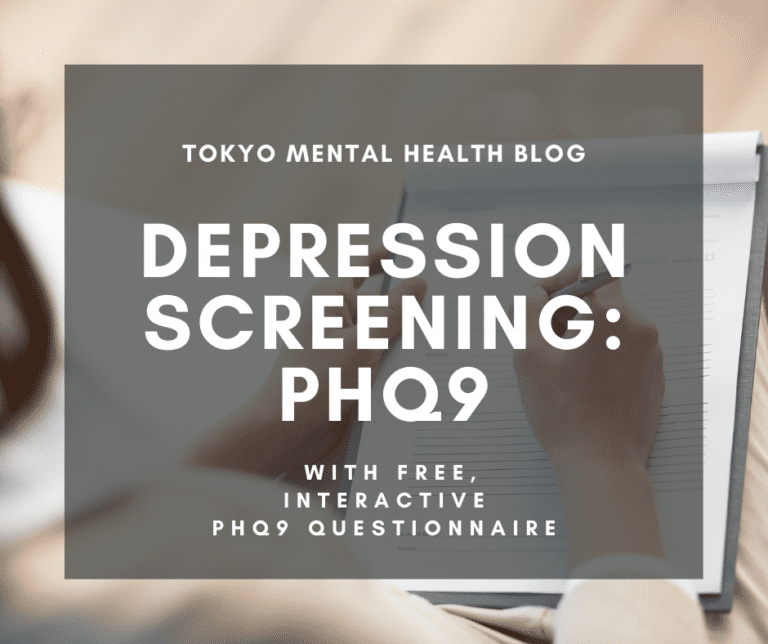- 2021/10/07
- Health Conditions

Today, October 7th, is National Depression Screening Day in the US. I must confess my ignorance about depression screening protocols in the US but in the UK, much health care delivery is guided by NICE – the National Institute for Care and Health Excellence. NICE guidance has long recommended health care professions screen patients they believe might be at risk of depression with these 2 simple questions:
- During the last month, have you often been bothered by feeling down, depressed or hopeless?
- During the last month, have you often been bothered by having little interest or pleasure in doing things?
These 2 questions are considered to be the two core features of depression. Broadly speaking, according to the generally accepted diagnostic definition of depression (see ICD-10 published by WHO with free access, or the very expensive DSM-5 published by APA) you need to be able to respond ‘yes’ to one of these two questions for doctors to be able to diagnose an episode of depression.
These 2 questions are very similar to the PHQ2, taken from the PHQ9: a very popular and well-validated self-rated depression screening instrument first developed in the US by Spitzer, Williams, Kroenke et al with Pfizer money.
What is the PHQ9 Questionnaire?
The PHQ9 questionnaire is open source now and available in multiple languages allowing it to be used by mental health professionals across the world and it has helped improve the detection of, and thereby treatment of, depression for many. There was a time in the UK where every GP used it to assess patients for depression.
If you responded ‘yes’ to either of the 2 questions above, you might want to consider trying the PHQ9. It takes less than 3 minutes to complete (yes, researchers have timed it!) and can assess the level of depressive symptom severity. If you score in the mild range, NICE recommends supportive counseling, lifestyle interventions, and checking the symptoms go away with time in what doctors call a ‘self-limiting’ manner. For those with chronic mild symptoms, or those with symptoms in the moderate or severe ranges, NICE recommends speaking to a mental health professional regarding pharmacotherapy or evidence-based psychological interventions such as CBT or IPT.
Free & Interactive PHQ9 Questionnaire
PHQ9 Questionnaire

Time's up